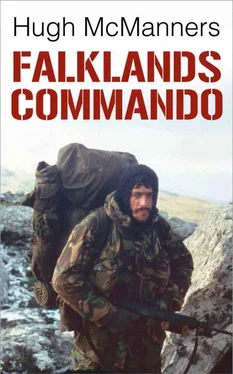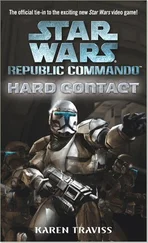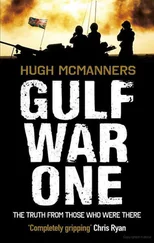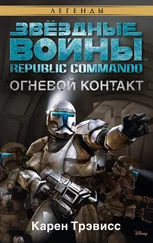Hugh McManners - Falklands Commando
Здесь есть возможность читать онлайн «Hugh McManners - Falklands Commando» весь текст электронной книги совершенно бесплатно (целиком полную версию без сокращений). В некоторых случаях можно слушать аудио, скачать через торрент в формате fb2 и присутствует краткое содержание. Город: London, Год выпуска: 2014, ISBN: 2014, Издательство: Nightstrike Publishing, Жанр: nonf_military, Биографии и Мемуары, на английском языке. Описание произведения, (предисловие) а так же отзывы посетителей доступны на портале библиотеки ЛибКат.
- Название:Falklands Commando
- Автор:
- Издательство:Nightstrike Publishing
- Жанр:
- Год:2014
- Город:London
- ISBN:978-0-992-81540-0
- Рейтинг книги:4 / 5. Голосов: 1
-
Избранное:Добавить в избранное
- Отзывы:
-
Ваша оценка:
- 80
- 1
- 2
- 3
- 4
- 5
Falklands Commando: краткое содержание, описание и аннотация
Предлагаем к чтению аннотацию, описание, краткое содержание или предисловие (зависит от того, что написал сам автор книги «Falklands Commando»). Если вы не нашли необходимую информацию о книге — напишите в комментариях, мы постараемся отыскать её.
Falklands Commando — читать онлайн бесплатно полную книгу (весь текст) целиком
Ниже представлен текст книги, разбитый по страницам. Система сохранения места последней прочитанной страницы, позволяет с удобством читать онлайн бесплатно книгу «Falklands Commando», без необходимости каждый раз заново искать на чём Вы остановились. Поставьте закладку, и сможете в любой момент перейти на страницу, на которой закончили чтение.
Интервал:
Закладка:
Extract from the forthcoming sequel to Falklands Commando
In July 1982, back in UK, after the report-writing, equipment-servicing, re-packing, a profusion of parties, then home leave in Cornwall, I was posted away from 148 Commando Forward Observation Battery and the Special Boat Squadron at Royal Marines Poole, to become a junior staff officer in London.
I was a small cog in the outer office of the Chief and Vice Chiefs of the General Staff in the Ministry of Defence’s Main Building, Whitehall. There could probably be no change of job quite so mind-bendingly different in any profession, let alone the Army.
I tried to persuade myself this was a welcome progression. I took up lodgings and a London social life, and got on with it.
But I wasn’t very good at Whitehall etiquette, in the monolithic, scruffy, cavernous Main Building. Also, I was surrounded by the same civil servants and brass hats as had been there before and during the war. When they realised I’d been ‘down south’ as they put it, they become impenetrably reticent, as if they knew things I didn’t. (Which I later realised was exactly the case.)
The long hours and stressful tedium were greatly relieved by my boss, the delightfully witty, razor-sharp Old Etonian Lt General Sir Thomas Morony, who in the usual Army manner, I addressed as ‘General Tim’. I was officially termed the ‘Assistant Military Assistant’ to the Vice-Chief of the General Staff or ‘AMA to VCGS’. When I pretended to complain to General Tim at being the ‘assistant, assistant to the overall assistant’ he accepted the joke.
Whilst in London, I bumped into various 3 Commando Brigade chums who’d been co-opted onto an Army presentation team, set up to travel round bases in the UK and Germany recounting what the Army had done in the Falklands. They were less than happy with the military politics of this jamboree: for example, telling me of pressure being applied by the influential hierarchy of the Welsh Guards in relation to how the Welsh Guard’s contributions to the war effort were to be presented.
Brigadier David Ramsbotham was the Director of Army Public Relations, and was a regular caller on the Vice Chief – so I came to know him well. He described to me the Army’s difficulties with us returning Falkland ‘heroes’:
“Many senior Army officers were extremely concerned that the Paras were going to claim all the glory, and were very angry when Max Hastings wrote an article in the Evening Standard saying that the ‘crap hat’ Welsh Guards and Scots Guards had been useless. We decided this kind of thing had to be stopped.
The CGS Dwin Brammell flew out to Ascension to see the Paras before they were flown home, to tell them face-to-face that they must remember others had also been involved, and not to run them down. It did appear to some people that more was being said about others who hadn’t done as much – but this was to counterbalance the idea that the Paras were hogging everything.
I wanted to make sure the Army’s part in the war was fully told, so before the fighting units left the Islands and their memories faded, I’d got every Commanding Officer to mark on a map where they’d been. I also spoke with each, then after returning to the UK, published a booklet giving the story of each unit – right down to the Army Physical Training Corps. Then, when all the units had returned to UK, an Army Presentation team was organised, to travel round, ensuring that everyone in the Army and many retired people too, heard first-hand what had happened.”
General Tim asked me to proof-read this booklet, a totally Army-oriented glossy production which reminded people that over half the troops that fought in the Falklands had been Army. This was a fair intention – public understanding of who’d done the fighting hadn’t extended much beyond being told the Royal Marines were part of the Navy, and television footage of grey warships.
But predictably, the brochure’s publication enraged the Navy. The First Sea Lord protested to the Secretary of State for Defence. An angry phone call from the Ministers’ outer office caused General Tim literally to have to run down the corridor, trailed by me having paused in the scramble to snatch up a dozen copies of the offending booklet.
General Tim was his usual urbane, civilised, amusing self. The Secretary of State was eventually mollified and the booklet published, to Royal Naval chagrin that they hadn’t thought of the idea first. I reflected that working like hell to become a three-star general only to have to run down corridors at the behest of over-reacting ministers, was not for me, even in the unlikely event of them thinking me good enough.
I lodged in the spare room of a somewhat dysfunctional family in the trendy, expensive part of Islington. The husband was an edgy media type who seemed to keep himself as much out of the family home as he could. His wife had been something in the media herself, but now blousy and anxious about whatever her husband was getting up to, was rushed off her feet with the pressures of au pairs, children and funky London life. The husband seemed very grumpy. I soon realised he regarded me as a threat. I kept myself as separate as I could from all this, getting up early to run to work, going to Cornwall at weekends, directly from the MoD.
The Falklands War was the fashionable topic of conversation, but thanks to media coverage, people were astonishingly ill-informed. Once my involvement became known, I felt obliged to answer the inevitable questions. But it was wearing, especially when even the most otherwise sophisticated people were crass enough to ask “Did you kill anybody?” This was a regular dinner party question. At one late night soiree, after my polite disinclination to answer had been ignored several times, with some irritation I finally snapped back by asking one particularly persistent woman whether she preferred it doggy-fashion or missionary style – to general outrage. A man with a brother in the Army understood my point and told everyone to back off.
But I could see the reason for the question: at that time, most people had never met anybody of their own generation who’d fought in a war. Fathers who fought in the Second World War or Korea were somehow different, and in any case did not talk of the numbers of German, Italians or North Koreans they’d killed. I was a distinct oddity.
Had I answered “Yes” to the loaded question, I knew that to anybody apart from fellow war veterans, I would be demoted onto a very different moral plane, as a person their sort never meet – a killer, to be seen through the eyes of these inexperienced but avariciously curious North London fashionista as less than human. In my case, I’d killed rather a lot of people, plus there was the matter of the tragic deaths of the three Falkland women to somehow come to terms with…
But their Sunday-supplement conjecture about the morals, causes and outcomes of the war was nothing more than a smart form of entertainment for otherwise bored people. The final straw for me occurred when the troubled wife with whom I lodged, lined me up for a dinner party she was giving for a collection of writers, poets and a notable playwright, where clearly I was to be the star attraction. I gave immediate notice, but as I was moving my stuff out three weeks later, just before the dinner party, the wife descended on me with a wide variety of threats and inducements to stay for that night. The playwright was developing something for Channel Four about the funeral of 2 Para’s Colonel ‘H’ Jones, and was ‘ desperate’ to talk with me. I was out of there, but to avoid a scene with the wife I agreed to go to the pub with this man.
I tried to get this guy to understand what the various points of view at this imaginary funeral were likely to be. But the actual facts of what had really happened were of no interest to him: ‘H’ Jones had been buried soon after the Goose Green battle as one of 2 Para’s 17 dead, in a large bull-dozed trench in the wet peat of San Carlos. To my increasing annoyance, I realised that he’d dreamed up an appalling barracks drama back in the UK, with drunken soldiers fighting each other, violent antipathy between the officers and other ranks, and so on… My suggestions accorded neither with his imaginings, nor the inevitable anti-war, anti-Thatcher perspective required of such a play in order to be televised. He was fishing for details to lend authenticity to his own preconceptions rather than seeking genuine insight, so I drank my pint and left, wishing I hadn’t bothered.
Читать дальшеИнтервал:
Закладка:
Похожие книги на «Falklands Commando»
Представляем Вашему вниманию похожие книги на «Falklands Commando» списком для выбора. Мы отобрали схожую по названию и смыслу литературу в надежде предоставить читателям больше вариантов отыскать новые, интересные, ещё непрочитанные произведения.
Обсуждение, отзывы о книге «Falklands Commando» и просто собственные мнения читателей. Оставьте ваши комментарии, напишите, что Вы думаете о произведении, его смысле или главных героях. Укажите что конкретно понравилось, а что нет, и почему Вы так считаете.












